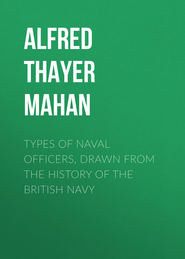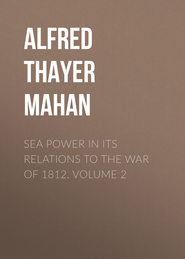По всем вопросам обращайтесь на: info@litportal.ru
(©) 2003-2024.
✖
The Influence of Sea Power upon the French Revolution and Empire 1793-1812, Vol II
Настройки чтения
Размер шрифта
Высота строк
Поля
381
Annals of Congress, 1807, p. 2814.
382
Annals of Congress, 1808-1809, p. 1824.
383
There were three Orders in Council published on the 11th of November, all relating to the same general subject. They were followed by three others, issued November 25, further explaining or modifying the former three. The author, in his analysis, has omitted reference to particular ones; and has tried to present simply the essential features of the whole, suppressing details.
384
The attention paid to sustaining the commerce of Great Britain was shown most clearly in the second Order of November 11, which overrode the Navigation Act by permitting any friendly vessel to import articles the produce of hostile countries; a permission extended later (by Act of Parliament, April 14, 1808) to any ship, "belonging to any country, whether in amity with his Majesty or not." Enemy's merchant ships were thus accepted as carriers for British trade with restricted ports. See Am. State Papers, vol. iii. pp. 270, 282.
385
Gibraltar and Malta are especially named, they being natural depots for the Mediterranean, whence a large contraband trade was busied in evading Napoleon's measures. The governors of those places were authorized to license even enemy's vessels, if unarmed and not over one hundred tons burthen, to carry on British trade, contrary to the emperor's decrees.
386
On March 28, 1808, an Act of Parliament was passed, fixing the duties on exportations from Great Britain in furtherance of the provisions of the Orders. This Act contained a clause excepting American ships, ordered into British ports, from the tonnage duties laid on those which entered voluntarily.
387
In a debate on the Orders, March 3, 1812, the words of Spencer Perceval, one among the ministers chiefly responsible for them, are thus reported: "With respect to the principle upon which the Orders in Council were founded, he begged to state that he had always considered them as strictly retaliatory; and as far as he could understand the matter they were most completely justified upon the principle of retaliation.... The object of the government was to protect and force the trade of this country, which had been assailed in such an unprecedented manner by the French decrees. If the Orders in Council had not been issued, France would have had free colonial trade by means of neutrals, and we should have been shut out from the Continent.... The object of the Orders in Council was, not to destroy the trade of the Continent, but to force the Continent to trade with us." (Cobbett's Parl. Debates, vol. xxi. p. 1152.)
As regards the retaliatory effect upon France, Perceval stated that the revenue from customs in France fell from sixty million francs, in 1807, to eighteen and a half million in 1808, and eleven and a half in 1809. (Ibid. p. 1157.)
388
Correspondance de Napoléon, vol. xvii. p. 19.
389
Mr. Henry Adams (History of the United States, 1801-1817) gives 134 as the number of American ships seized between April, 1809, and April, 1810, and estimates the value of the vessels and cargoes at $10,000,000 (Vol. v. p. 242.) The author takes this opportunity of acknowledging his great indebtedness to Mr. Adams's able and exhaustive work, in threading the diplomatic intricacies of this time.
390
December 26, 1805.
391
Metternich's Memoirs, vol. i. p. 82.
392
Metternich to Stadion, Jan. 11, 1809; Memoirs, vol. ii. p. 312.
393
Letter of Napoleon to Louis, dated Trianon, Dec. 20, 1808; Mémoires de Bourrienne, vol. viii. p. 134. Garnier's Louis Bonaparte, p. 351. The date should be 1809. On Dec. 20, 1808, Napoleon was at Madrid, in 1809 at Trianon; not to speak of the allusion to the Austrian war of 1809.
394
Napoleon issued orders to this effect in August, 1807. Cargoes of goods such as England might furnish were sequestrated; those that could not possibly be of British origin, as naval stores and French wines, were admitted. All vessels were to be prevented from leaving the Weser. No notification of this action was given to foreign agents. See Cobbett's Political Register, 1807, pp. 857-859.
395
Thiers, Consulate and Empire (Forbes's translation), vol. xii. p. 21.
396
Mémoires de Bourrienne, French Minister at Hamburg, vol. viii. pp. 193-198.
397
Annual Register, 1809; State Papers, 747.
398
April 1, 1808; Naval Chronicle, vol. xxi. p. 48. May 7, 1809; Annual Register, 1809, p. 698.
399
Napoleon saw, in 1809, that his work at Tilsit was all to be done over, since the only war Russia could make against the English was by commerce, which was protected nearly as before. There was sold in Mayence sugar and coffee which came from Riga.—Mémoires de Savary, duc de Rovigo (Imperial Chief of Police), vol. iii. p. 135.
400
D'Ivernois, Effects of the Continental blockade, London, Jan., 1810. Lord Grenville, one of the leaders of the Opposition, expressed a similar confidence when speaking in the House of Lords, Feb. 8, 1810. (Cobbett's Parl. Debates, vol. xv. p. 347.) So also the King's speech at the opening of Parliament, Jan. 19, 1809: "The public revenues, notwithstanding we are shut out from almost all the continent of Europe and entirely from the United States, has increased to a degree never expected, even by those persons who were most sanguine." (Naval Chronicle, vol. xxi. p. 48.)
401
Monthly Magazine, vol. xxi. p. 195.
402
Ibid., vol. xxii. p. 514.
403
Ibid., vol. xxi. p. 539.
404
Monthly Magazine, vol. xxii. p. 618.
405











